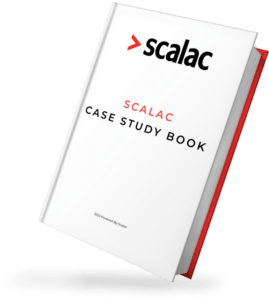
How to make working with Specs2 much easier

Hi. Specs2 is one of the most popular Scala libraries for testing, but definitely not a simple one. That’s why I’ve decided to create a blog post with a few tricks on how to make working with Specs2 much easier. The examples are 100% artificial, but their purpose is only to demonstrate the capabilities of Specs2.
Basic example
Ok, so let’s start with a basic example.
import org.specs2.mutable.Specification
class MathSpec extends Specification {
"Math" should {
"add" in {
1+2 === 3
}
}
}Pass the data into the tests
We can do this in (at least) two ways. Just pass the data as regular variables:
import org.specs2.mutable.Specification
class MathSpec extends Specification {
"Math" should {
val pi = 3.14
"multiply" in {
2*pi === 6.28
}
}
}or pass them as a scope
import org.specs2.mutable.Specification
import org.specs2.specification.Scope
class MathSpec extends Specification {
class Context extends Scope {
val pi = 3.14
}
"Math" should {
"multiply" in new Context {
2*pi === 6.28
}
}
}The first option is very straightforward and works well for small tests, but is impractical for bigger ones or when you want to (for some reason) share the values.
Implement custom Setup and Teardown
Now let’s say that we need to perform some important operations before and after every single test case. How can we achieve that? It’s simple. We can use Contexts again.
First of all, we need to create a helper for the local setup and Teardown. We can do it like this:
trait Context extends BeforeAfter {
def before: Any = println("Doing setup")
def after: Any = println("Done. Cleanup")
}now we can do
Implement custom Setup and Teardown for all test cases
The above example works well, but only for single test cases. So now let’s write something for the whole test suite.
import org.specs2.mutable.Specification
import org.specs2.specification.{Step, Fragments}
trait BeforeAllAfterAll extends Specification {
override def map(fragments: => Fragments) =
Step(beforeAll) ^ fragments ^ Step(afterAll)
protected def beforeAll()
protected def afterAll()
}
class MathSpec extends Specification with BeforeAllAfterAll {
def beforeAll() {
println("Starting MathSpec")
}
def afterAll() {
println("Ending MathSpec")
}
"Math" should {
"divide" in {
8/2 === 4
}
}
}Random thoughts
- Watch out for the static configuration and methods, they might cause tests to break from time to time.
- When using Specs2, try not to mix sub-packages. Some mixins from org.specs2.mutable might not work with those from org.specs2.specification and so on. Even worse, they might just fail silently.
- As you have probably already noticed, Contexts can be classes, traits, and objects.
Do you like this post? Want to stay updated? Follow us on Twitter.










